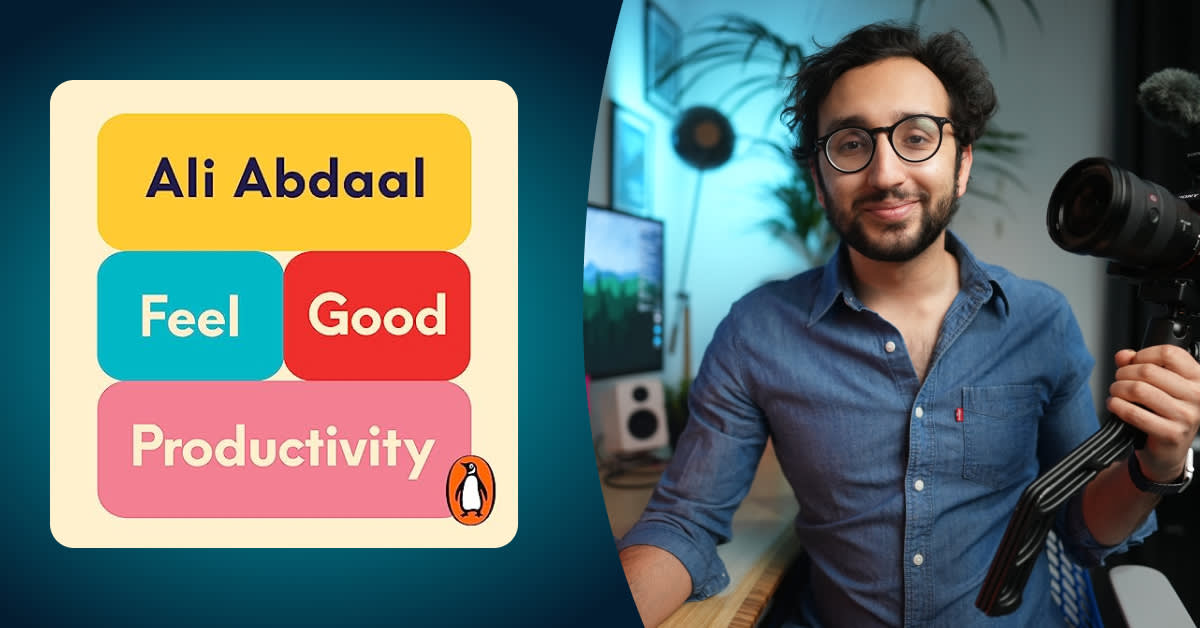Can you tell us more about the inspiring people mentioned in your book?
My favourite story in the book is about the physicist Richard Feynman. Most people know about Richard’s later career – by which point he’s a world-renowned professor and famous public intellectual. But I got much more interested in his early career: the moment when he’s in his late 20s, a professor at Cornell, and has got totally bored of physics. In fact, whole years pass in which he basically doesn’t do any physics at all, he finds it too depressing. In the book I recount how he got over the problem. After a few years of doing nothing much, Feynman challenges himself to start thinking about doing physics not as a job but as a game. ’I used to enjoy doing physics,’ he later wrote: ‘Why did I enjoy it? I used to play with it.’ And so that’s what he does: he starts ‘playing’ with ideas, with a sense of humour and fun, and without any real objective in sight. This approach is what gets him back on track: he soon falls back in love with physics and eventually wins a Nobel Prize. That’s the best summary of Feel-Good Productivity that I know of – showing that the trick to productivity isn’t discipline, it’s joy.
If there was one thing that you would encourage people to implement today in order to be more productive what would it be?
The basic idea at the heart of Feel-Good Productivity is pretty simple: when we’re feeling good, we’re more likely to actually do the things we need to. Lots of productivity advice is obsessed with ‘discipline’ or ‘grind’. My philosophy is simpler: if you can make the tasks before you feel fun and meaningful, then they stop feeling like work – and that makes them much easier to complete. So, my top piece of productivity advice would probably be to ask yourself a simple question: ‘What would this look like if it were fun?’. Think of a task that you don’t want to do right now, and ask what would it look like if it were actually enjoyable. Could you put on music in the background? Or make it more creative and colourful? What if you set out to do the task with friends, or promised yourself a treat at the end of the process? Nowadays ‘What would this look like if it were fun?’ is a maxim I use whenever I’m feeling drained or unmotivated. It has a weirdly big impact on my ability to focus.
What ignited your passion to help others be more productive?
It was never my intention to be a ‘productivity expert’: I started out posting piano covers and technology reviews on YouTube when I was a student. But when I graduated from medical school and became a junior doctor, I found that all the tricks I’d used during my studies stopped working – I felt completely burnt out and was endlessly worrying that I might make a mistake that would kill someone. Over the next few months, I became obsessed with the science of productivity. And the more I read, the more I suspected that lots of the most common truisms about productivity were wrong. That was the starting point for feel-good productivity. After I started to let go of my obsessions with discipline and focus instead on making work feel good, those horrific shifts soon started to get easier. This was when I started using my channel to share practical insights I’d learned from psychology and neuroscience, experimenting with everything I learned and seeing if it might work for other people too.
You are an ex-doctor turned YouTuber, Podcaster, entrepreneur, and author – are these strategies that you implemented in order to accomplish so much?
Yes! The ideas in Feel-Good Productivity definitely saved my career; they probably saved my mental health too. I remember one appointment with an elderly patient a few months after I discovered feel-good productivity: she said, ‘you’re the first one in here who’s smiled all week.’ I’ll never forget that moment. It’s what made me realise that if I was really serious about achieving everything I wanted to – not just being a doctor, but building my business and later writing a book – I had to focus on my wellbeing as much as just my ability to ‘hustle’.
Were there any books that you found particular enlightening / inspiring on your own journey?
Hard question! I read tonnes of books and could talk about most of them for hours. But the book that started my whole journey to becoming a productivity writer was Tim Ferriss’s classic The Four-Hour Work Week, which I still recommend to everyone. More recently I loved a slightly more niche book, Unreasonable Hospitality by Will Guidara. Guidara is one of the world’s leading restauranteurs and his book offered me a new way of thinking about creativity – encouraging me to see it not as something that comes spontaneously, but rather as the result of having a creativity system in place. I found this idea very liberating: for a long time, I’ve thought ‘I’m just not a very creative person’, whereas Will showed me that, in fact, creativity is something that anyone can learn (including me).
Who should listen to your book?
Anyone who is feeling burnt out and wants to enjoy their work and life again.
About Ali Abdaal:
Ali Abdaal is world's most-read productivity expert. In 2017, during his final year as a medical student at Cambridge, Ali started posting YouTube videos about psychology. His channel now has over 4 million subscribers and his acclaimed online productivity courses have reached hundreds of thousands of people. As well as working as a productivity expert, Ali is a teacher, investor and part-time magician. He lives in London.
Listen to Feel Good Productivity on Audible.





